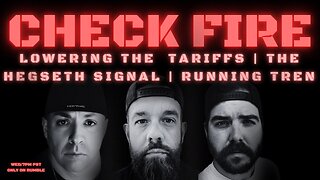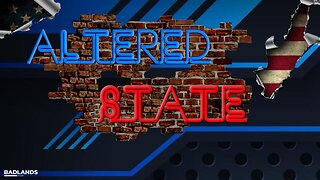Premium Only Content

Why Unblock Your Abuser?
Why Would Anyone Unblock Someone Who Calls Them a Nonce or Paedophile?
It's a question that deserves careful exploration: why would anyone unblock someone who has called them the vilest names imaginable, such as a nonce or paedophile? In the case of James West, a notorious YouTube troll who has built a reputation for stalking, harassing, and hurling abusive accusations at his victims, this paradox becomes even more intriguing. West, like many other online antagonists, has a pattern: he harasses people, labels them with defamatory terms, and then plays the victim when they block him.
To understand this dynamic, let’s unpack the psychology, motivations, and implications behind unblocking—or not unblocking—such a person.
1. The Power of Boundaries.
Blocking someone who spreads hate or false accusations is a way of protecting oneself. It is a boundary that sends a clear message: “I will not engage with your toxicity.” Unblocking such a person, therefore, risks eroding that boundary and reopening the door to further abuse.
In the case of someone like West, who thrives on conflict, unblocking might simply provide another platform for him to escalate his harassment. For many, keeping such individuals blocked is about preserving mental health and protecting one's peace.
2. The Troll’s Contradiction.
Trolls like James West embody a strange contradiction. On the one hand, they aim to provoke and humiliate their targets with the most offensive insults they can muster. On the other, they demand access to the very people they ridicule, often framing their exclusion as a violation of their “rights.”
This contradiction reveals a deeper truth about trolls: they crave attention and validation. Being blocked cuts off their supply, leaving them powerless. Their complaints about being blocked are less about fairness and more about their desire to regain control.
3. Forgiveness vs. Accountability.
There’s an argument to be made for forgiveness, even for trolls. Perhaps unblocking someone like West could serve as an opportunity for dialogue or redemption. But forgiveness does not mean a free pass for continued abuse.
When someone has crossed the line into defamatory and harmful accusations, as West has done, accountability must take precedence. Forgiving someone does not require giving them unrestricted access to your life.
4. Control and the Narrative.
Unblocking someone who has called you a nonce or paedophile risks legitimizing their behaviour in the eyes of others. Trolls often twist events to suit their narrative, portraying unblocking as a sign of weakness or agreement.
In West’s case, his behaviour suggests a calculated attempt to manipulate his targets into engaging with him, providing more material for his campaign of harassment. Staying blocked denies him the ability to control the narrative.
5. Why Do Trolls Complain About Being Blocked?
West’s behaviour is a classic example of trolling psychology. By complaining about being blocked, he shifts the focus from his own actions to his victim’s response. This is a deflection tactic, designed to paint himself as the victim and his targets as unreasonable or overreacting.
This tactic also feeds into his need for attention. The more people talk about him—whether positively or negatively—the more he feels validated.
In Conclusion.
Unblocking someone like James West, who has demonstrated a pattern of harassment and defamation, is not only unwise but potentially harmful. Boundaries are essential for maintaining mental health and protecting oneself from further abuse.
For those who have been the target of such trolls, it’s crucial to remember: blocking is not about silencing someone; it’s about preserving your own well-being. No one is obligated to engage with individuals who choose to spread hate and lies.
As for West, the best way to deal with his toxic behaviour is to continue enforcing boundaries and denying him the platform he craves.
-
 LIVE
LIVE
RalliedLIVE
8 hours ago $3.01 earnedWednesday Warzone Special w/ Rallied
549 watching -
 3:19:56
3:19:56
Fragniac
6 hours ago🔴FORTNITE w/ The BRRRAP PACK ( -_•)╦ ╤─💥
19.8K -

I_Came_With_Fire_Podcast
12 hours agoLOWERING THE TARIFFS | THE HEGSETH SIGNAL | RUNNING TREN
25.8K3 -
 9:34:32
9:34:32
Dr Disrespect
13 hours ago🔴LIVE - DR DISRESPECT - WARZONE - HOW TO WIN SOLO GAMES
182K19 -
 4:21:34
4:21:34
TheNateVibez
5 hours agoRisking it all to save Tamriel and it's people✌ || Agent of the Nine⚔
15.3K -
 24:19
24:19
BlackDiamondGunsandGear
1 day agoAnderson Frontline / Can it take 1000 Rnds in One Day?
14.4K7 -
 3:29:52
3:29:52
mrsZWOGs
4 hours ago🟢✨ GAMING WITH MRSZWOGS! - Variety Games | Disney Dreamlight Wonderland Update
9.07K -
 59:56
59:56
Motherland Casino
3 hours ago $0.51 earnedSofi x Genesis
6.58K -
 1:48:43
1:48:43
Omar Elattar
11 hours agoTroy Eckard Shares His Rags to Riches Story
46.1K2 -
 1:31:24
1:31:24
Badlands Media
16 hours agoAltered State S.3, Ep. 25: 9/11 Truth, Rogue Tech, and the AI Takeover of Hollywood
40K7